Speakers
An amazing lineup to help advance your career as a physician-scientist
Keynote Speakers
Kafui Dzirasa, MD, PhD
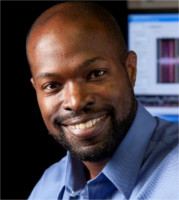
Friday, April 21st
11:00 am – 11:45 am
International Ballroom
Associate Professor at the Duke Institute for Brain Science and Sidney R. Baer, Jr. Prizewinner for Schizophrenia Research
Kafui Dzirasa is the first African American to complete a PhD in Neurobiology at Duke University. His research interests focus on understanding how changes in the brain produce neurological and mental illness, and his graduate work has led to several distinctions including: the Somjen Award for Most Outstanding Dissertation Thesis. In 2009, Kafui obtained an MD from the Duke University School of Medicine. He was subsequently appointed as an assistant professor and house staff in the Department of Psychiatry and Behavioral Science at the Duke University School of Medicine.
Kafui has served on the Board of Directors of the Student National Medical Association: a national organization dedicated to the eradication of health care disparities. Kafui received the Charles Johnson Leadership Award in 2007, and he was recognized as one of Ebony magazine’s 30 Young Leaders of the Future in February 2008. He has also been awarded the International Mental Health Research Organization Rising Star Award, the Sydney Baer Prize for Schizophrenia Research, and his laboratory was featured on CBS 60 Minutes in 2011.
Kafui’s ultimate goal is to combine his research, medical training, and community experience to improve outcomes for diverse communities suffering from Neurological and Psychiatric illness.
Sanjay Misra, MD
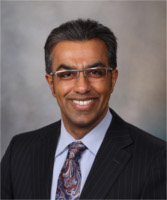
Friday, April 21st
12:00 pm – 12:45 pm
International Ballroom
Chair of the Vascular Radiology Research Department at Mayo Clinic
Sanjay Misra, MD, FAHA, FSIR is currently Professor and Chair of the Vascular Radiology Research Department at Mayo Clinic where he has been faculty since July 2000. He has published more than 138 peer-reviewed manuscripts of which greater than 45 being in the vascular biology field of his scientific funded lab.
As a physician-scientist, his laboratory studies the cellular signaling and mechanisms responsible for reducing venous neointimal hyperplasia and treating renal ischemic injury using small molecule inhibitors, nano-therapies, anti-angiogenic therapies, and cell based approaches. He has received more than 4 million dollars in extramural funding from the National Institutes of Health, American Heart Association, and Industry.
Eric Kandel, MD
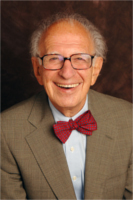
Friday, April 21st
4:00 pm – 4:30 pm
International Ballroom
Kavli Professor and Director of the Kavli Institute for Brain Science and Co-Director of the Mortimer B. Zuckerman Mind Brain Behavior Institute
Eric R. Kandel, M.D., is University Professor at Columbia University; Kavli Professor and Director, Kavli Institute for Brain Science; Co-Director, Mortimer B. Zuckerman Mind Brain Behavior Institute; and an Investigator at the Howard Hughes Medical Institute. A graduate of Harvard College and N.Y.U. School of Medicine, Kandel trained in Neurobiology at the NIH and in Psychiatry at Harvard Medical School. He joined the faculty of the College of Physicians and Surgeons at Columbia University in 1974 as the founding director of the Center for Neurobiology and Behavior. At Columbia Kandel organized the neuroscience curriculum. He is an editor of Principles of Neural Science, the standard textbook in the field now in its 5 th edition. In 2006, Kandel wrote a book on the brain for the general public entitled In Search of Memory: The Emergence of a New Science of Mind, which won both the L.A. Times and U.S. National Academy of Science Awards for best book in Science and Technology in 2008. A documentary film based on that book is also entitled In Search of Memory. In 2012 Kandel wrote The Age of Insight: The Quest to Understand the Unconscious in Art, Mind, and Brain, from Vienna 1900 to the Present, which won the Kreisky Award in Literature, Austria's highest literary award. Kandel’s new book entitled, Reductionism in Art and Brain Science: Bridging the Two Cultures, published by Columbia University Press has just been released.
Kandel’s research has been concerned with the molecular mechanisms of memory storage in Aplysia and mice. More recently, he has studied animal models in mice, age related memory disorders, post-traumatic stress disorders, nicotine, alcohol, marijuana and cocaine addiction.
Kandel has received twenty-three honorary degrees, is a member of the U.S. National Academy of Sciences as well as being a Foreign Member of the Royal Society of London and a member of the National Science Academies of Austria, France, Germany and Greece. He has been recognized with the Albert Lasker Award, the Heineken Award of the Netherlands, the Gairdner Award of Canada, the Harvey Prize and the Wolf Prize of Israel, the National Medal of Science USA and the Nobel Prize for Physiology or Medicine in 2000.
Solomon Snyder, MD, DSc, DPhil

Friday, April 21st
5:30 pm – 6:00 pm
International Ballroom
Lasker-APSA Award Lecture
Solomon H. Snyder joined the faculty of Johns Hopkins University School of Medicine in 1966. In 1980, he established the Department of Neuroscience and served as Director (1980-2006). He is presently Distinguished Service Professor of Neuroscience, Pharmacology and Psychiatry.
Dr. Snyder is the recipient of numerous professional honors, including the Albert Lasker Award for Basic Biomedical Research (1978), the National Medal of Science (2005), the Warren Alpert Prize, and Harvard University (2014). He is a member of the United States National Academy of Sciences and a Fellow of the American Academy of Arts and Sciences and the American Philosophical Society. He is the author of more than 1000 journal articles and several books including Uses of Marijuana (1971), Madness and the Brain (1974), The Troubled Mind (1976), Biological Aspects of Abnormal Behavior (1980), Drugs and the Brain (1986), and Brainstorming (1989).
Leonard Zon, MD
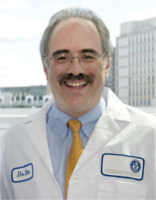
Saturday, April 22nd
10:45 am – 11:15 am
International Ballroom
Grousbeck Professor of Pediatric Medicine at Harvard Medical School
Dr. Zon is the Grousbeck Professor of Pediatric Medicine at Harvard Medical School, an Investigator at Howard Hughes Medical Institute, and the Director of the Stem Cell Program at Boston Children’s Hospital. He is internationally-recognized for his pioneering work in stem cell biology and cancer genetics, and has been the preeminent figure in establishing zebrafish as an invaluable genetic model for the study of the blood and hematopoietic development.
Julie Gerberding, MD, MPH
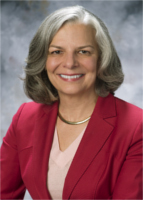
Saturday, April 22nd
4:00 pm – 4:30 pm
International Ballroom
Executive Vice President & Chief Patient Officer of Strategic Communications, Global Public Policy, & Population Health
Dr. Julie Gerberding is Executive Vice President and Chief Patient Officer, Strategic Communications, Global Public Policy, and Population Health at Merck & Co., Inc., where she also has responsibility for the “Merck for Mothers” global program to prevent maternal mortality and the Merck Foundation. She joined Merck in January 2010 as president of Merck Vaccines and led efforts to make the company’s vaccines more available and affordable to people in resource-limited countries around the world.
She left her tenured faculty position at the University of California, San Francisco in 1998 to lead the U.S. Centers for Disease Control and Prevention (CDC) Division of Healthcare Quality Promotion and then served as the CDC Director from 2002 to 2009. As director, she led the CDC through more than 40 emergency responses to public health crises, including anthrax bioterrorism, SARS, and natural disasters. She also advised governments around the world on urgent issues such as pandemic preparedness, AIDS, antimicrobial resistance, tobacco, and cancer.
Dr. Gerberding currently serves on the Boards of CWRU, National Association of City and County Health Officials (NACCHO) Foundation, MSD Wellcome Trust Hilleman Laboratories, and the BIO Executive Committee. She has received more than 50 awards and honors, including the United States Department of Health and Human Services (DHHS) Distinguished Service Award for her leadership in responses to anthrax bioterrorism and the September 11, 2001 attacks. She was named to Forbes Magazine's 100 Most Powerful Women in the World in 2005 through 2008 and to TIME Magazine's 100 Most Influential People in the World in 2004.
Kirsten Bibbins-Domingo, MD, PhD

Saturday, April 22nd
7:30 pm – 9:00 pm
International Ballroom
Lee Goldman, MD Endowed Chair in Medicine at UCSF
Kirsten Bibbins-Domingo, PhD, MD, MAS received her medical degree, PhD in biochemistry, and masters in epidemiology and biostatistics from UCSF, where she also completed an internship, residency, and fellowship in internal medicine. She is a practicing general internist at Zuckerberg San Francisco General Hospital.
Dr. Bibbins-Domingo is the Lee Goldman, MD Endowed Chair in Medicine and Professor of Medicine and of Epidemiology and Biostatistics at the University of California, San Francisco (UCSF). She is a national expert in cardiovascular disease epidemiology; in racial, ethnic, and income disparities in health; and clinical and public health interventions aimed at chronic disease prevention. Additionally, she has been the recipient of many honors and awards, including induction into the American Society for Clinical Investigation and the National Academy of Medicine. Dr. Bibbins-Domingo was appointed Chair of the U.S. Preventive Services Task Force in March 2016 and has been a member since 2010.
S. Louis Bridges, Jr., MD, PhD

Sunday, April 23rd
9:30 am – 10:00 am
Gold Room
Director of the UAB Division of Clinical Immunology and Rheumatology
S. Louis Bridges, Jr., MD, PhD is Anna Lois Waters Endowed Professor of Medicine at the University of Alabama at Birmingham and has served as Director of the UAB Division of Clinical Immunology and Rheumatology since 2009. He is also the Director of the UAB Comprehensive Arthritis, Musculoskeletal, Bone, and Autoimmunity Center. Dr. Bridges received a Bachelor of Science degree from the University of Notre Dame, and an MD degree from Louisiana State University School of Medicine in New Orleans, Louisiana. After serving as a Resident and Chief Medical Resident at the University of Texas Medical Branch in Galveston, Texas, he completed a fellowship in Rheumatology at UAB, where he also obtained a PhD degree in Microbiology. His research has been continuously funded by NIH throughout his career and is focused on the identification of genetic influences on rheumatoid arthritis susceptibility and severity, particularly in African-Americans, autoantibodies in RA, biomarkers of treatment response in RA. He has authored more than 120 manuscripts, 20 book chapters, and served as Editor of three editions of the text Vasculitis, published by Oxford University Press. He serves as Principal Investigator of the NIH-funded UAB Multidisciplinary Clinical Research Center, Co-Director of the NIH- funded UAB Center of Research Translation in Gout and Hyperuricemia, and Associate Director of the NIH-funded UAB Rheumatic Disease Cores Center. He has been named to the Best Doctors in America list yearly since 2003, is Director of UAB’s NIH-funded Training Program in Rheumatic and Musculoskeletal Diseases Research, and is a Co-Editor of Arthritis & Rheumatology. He has served on many grant review panels and is former Chair of the NIH Arthritis, Musculoskeletal, and Skin Study Section. Dr. Bridges serves as Chair of the American College of Rheumatology’s Committee on Research and is a member of the Board of Directors and Scientific Advisory Council of the Rheumatology Research Foundation. He also serves as a member of the Arthritis Foundation’s Medical and Scientific Advisory Committee.